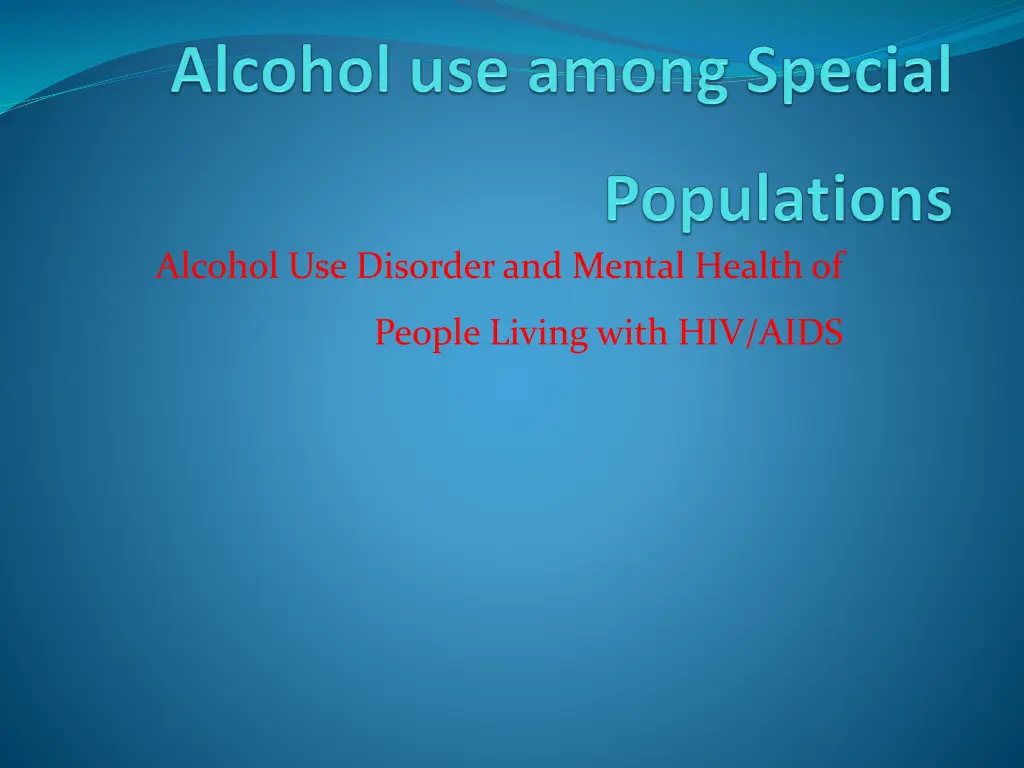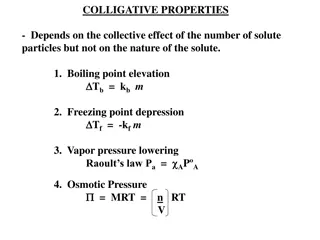
Alcohol Use Disorder's Impact on Mental Health of People Living with HIV/AIDS
This study explores the influence of Alcohol Use Disorder (AUD) on the mental health of Persons Living with HIV/AIDS (PLWHA) in Uganda. Findings show that AUD contributes significantly to depression, anxiety, and psychosis among PLWHA, highlighting the need for interventions to promote positive living and reduce alcohol consumption in this population.
Download Presentation

Please find below an Image/Link to download the presentation.
The content on the website is provided AS IS for your information and personal use only. It may not be sold, licensed, or shared on other websites without obtaining consent from the author. If you encounter any issues during the download, it is possible that the publisher has removed the file from their server.
You are allowed to download the files provided on this website for personal or commercial use, subject to the condition that they are used lawfully. All files are the property of their respective owners.
The content on the website is provided AS IS for your information and personal use only. It may not be sold, licensed, or shared on other websites without obtaining consent from the author.
E N D
Presentation Transcript
Alcohol Use Disorder and Mental Health of People Living with HIV/AIDS
Introduction Uganda s HIV/AIDS prevalence rate stands at 7.1% as per UNAIDS, 2018 report and alcohol use disorder has been identified as a contributing and perpetuating factor for the prevalent rate as well as mental health among persons living with HIV/AIDS. The study sought to establish the influence of Alcohol Use Disorder (AUD) on mental health of Persons Living with HIV/AIDS at Entebbe TASO center, Wakiso District Uganda. It examined the influence of AUD on depression; anxiety and psychosis among PLWHA
Methodology Acase study research design was employed using a sample of 341 respondents (PLWHA and counselors). Data was collected using AUDIT screening tool, MMS standardized questionnaire and interviews and triangulated. Quantitative data was analyzed using descriptive statistics and inferential statistics while qualitative data was by thematic analysis.
Key Results AUD contributes 46.6% to depression levels among PLWHA which may lead to insomnia, poor diet and contrast to positive living. AUD contributes 24.0% and anxiety which promotes a stressful and an emotionally charged life style of restlessness. A risky relationship between psychosis and AUD (11.6%) accounting for poor drug and treatment adherence as it reduces insight.
Conclusion The study, therefore, inferred that there is a risky mental health implication involved inAUD and PLWHA. The study recommended that PLWHA should embrace positive living through zero tolerance to alcohol usage as self-medication and formulation of alcohol regulating policies in the country to reduce alcohol consumption among PLWHA.






















